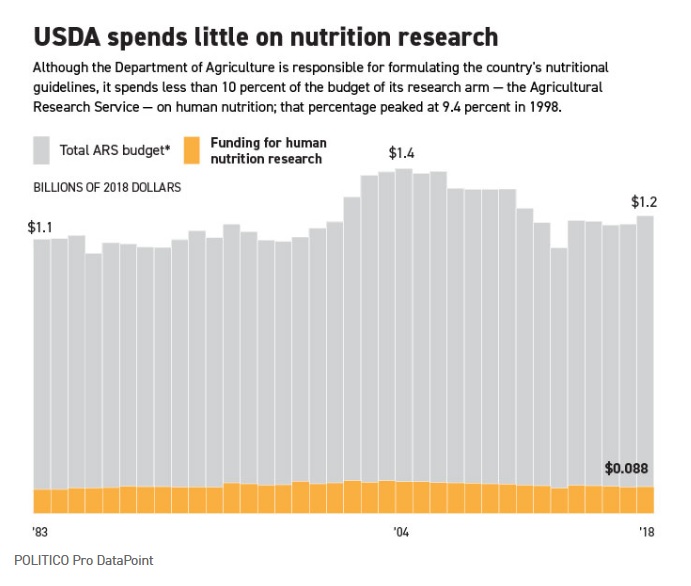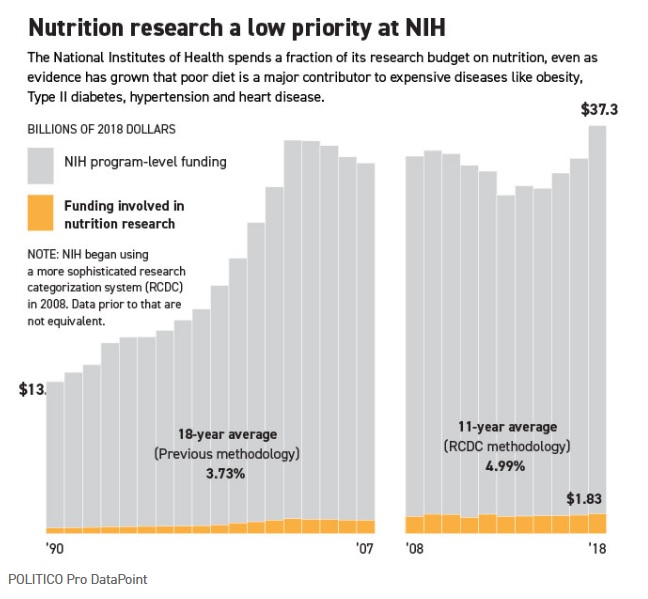The United States of America has been reactive over the past few decades in the fight against preventable diseases such as diabetes, heart disease, and others. Why? Good question. Below, two charts will show the research funding for the last few decades on nutrition research. Research which might have prevented many onsets of life-threatening diseases such as diabetes which leads to cardiovascular diseases -- heart disease.
The research alluded to above is funded primarily through the National Institutes of Health (NIH). The NIH is supported by the Department of Health and Human Services (HHS). How much does the HHS give to the NIH? Roughly $33 billion in 2019.
What is the budget of the HHS?
Roughly, $158 billion in 2019. Here is the excerpt from the HHS FY 2019 Budget Page:
The President’s Fiscal Year (FY) 2020 Budget makes thoughtful and strategic investments to protect the health and well-being of the American people, while addressing the opioid crisis, promoting patient-centered healthcare, strengthening services for American Indians and Alaska Natives, encouraging innovation in America’s healthcare future, addressing high drug prices, reforming the Department’s regulations, and generally focusing resources toward proven and effective initiatives.
That budget includes funding Medicare and Medical along with all other health care costs. Which is an enormous amount of expenditure? What amazes me is that the total amount spent on nutrition research is just a mere $1.2 billion in total. Why so little? Especially since the repercussions of bad nutrition evolving into a diseased state -- which costs the healthcare system more money down the road?
Research Spending
The graph below illustrates the trend in research spending funding for the NIH over the last few decades.
A constant amount is shown over the last few decades which is astounding given the increasing costs of not dealing with malnutrition on the part of the healthcare system.
We are living in a world where our priorities are misaligned with the needs of the American people. Hopefully, in the future, the ship (funding) can be steered toward a viable solution. A solution that matches the needs of the American people while reducing healthcare costs before they happen.



No comments:
Post a Comment